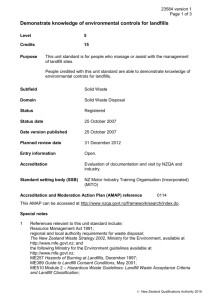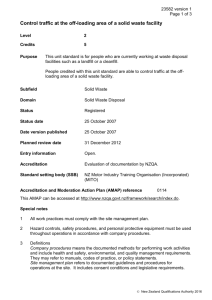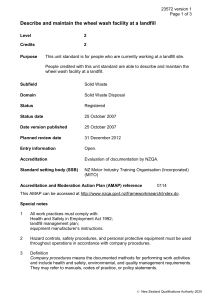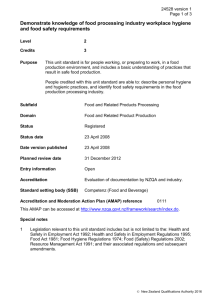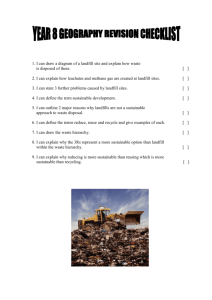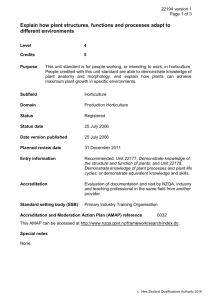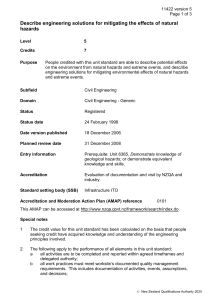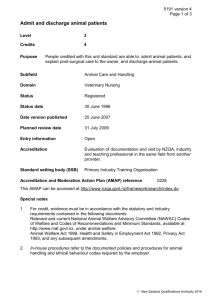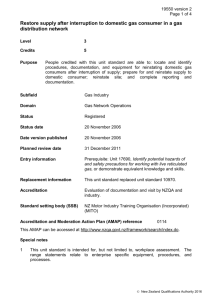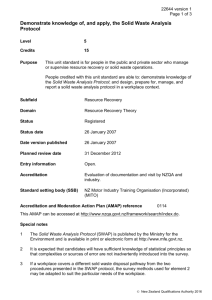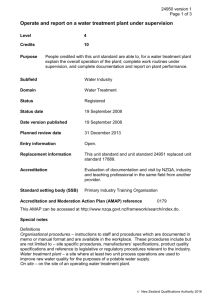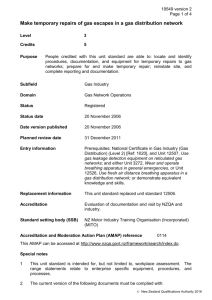23576 Demonstrate knowledge of, create, and strip daily
advertisement
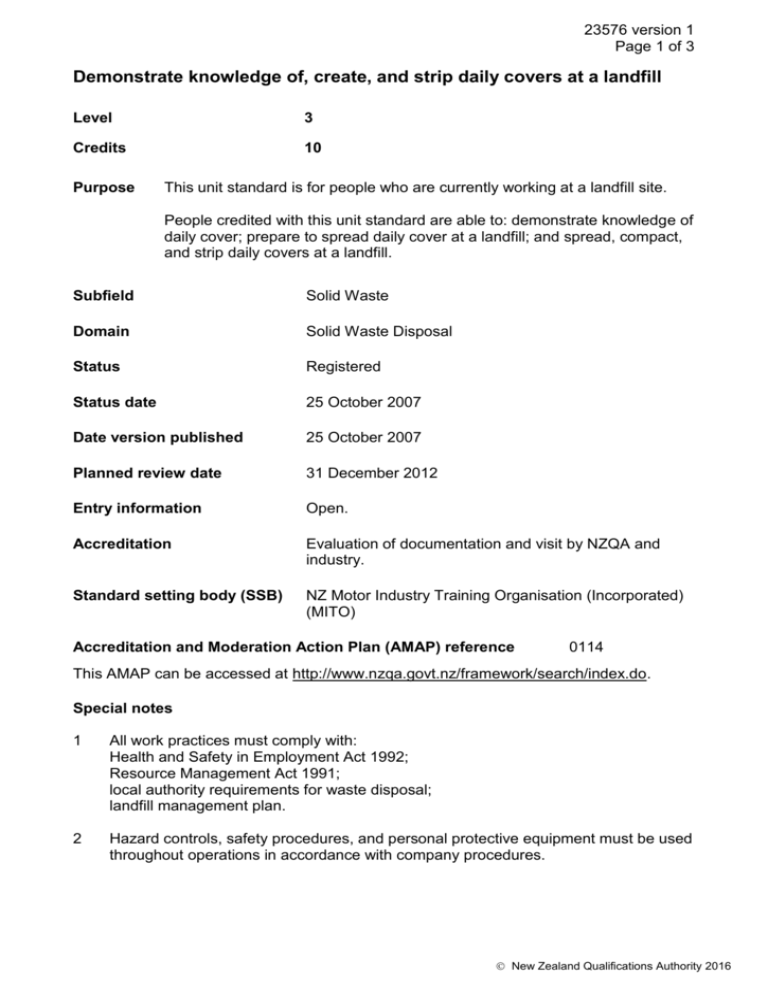
23576 version 1 Page 1 of 3 Demonstrate knowledge of, create, and strip daily covers at a landfill Level 3 Credits 10 Purpose This unit standard is for people who are currently working at a landfill site. People credited with this unit standard are able to: demonstrate knowledge of daily cover; prepare to spread daily cover at a landfill; and spread, compact, and strip daily covers at a landfill. Subfield Solid Waste Domain Solid Waste Disposal Status Registered Status date 25 October 2007 Date version published 25 October 2007 Planned review date 31 December 2012 Entry information Open. Accreditation Evaluation of documentation and visit by NZQA and industry. Standard setting body (SSB) NZ Motor Industry Training Organisation (Incorporated) (MITO) Accreditation and Moderation Action Plan (AMAP) reference 0114 This AMAP can be accessed at http://www.nzqa.govt.nz/framework/search/index.do. Special notes 1 All work practices must comply with: Health and Safety in Employment Act 1992; Resource Management Act 1991; local authority requirements for waste disposal; landfill management plan. 2 Hazard controls, safety procedures, and personal protective equipment must be used throughout operations in accordance with company procedures. New Zealand Qualifications Authority 2016 23576 version 1 Page 2 of 3 3 It is recommended that, prior to assessment against this unit standard, candidates hold a driver licence for the class and endorsement appropriate to the vehicle used. 4 Definition Company procedures means the documented methods for performing work activities and include health and safety, environmental, and quality management requirements. They may refer to manuals, codes of practice, or policy statements. Elements and performance criteria Element 1 Demonstrate knowledge of daily cover. Performance criteria 1.1 Daily cover is described in terms of benefits to the landfill. Range 1.2 Cover requirements are described in accordance with company procedures. Range 1.3 benefits relating to – leachate, odour, vectors, fire. materials, thickness, equipment, area to be covered. Hazards of spreading operations are identified, and their controls are described in accordance with company procedures. Range hazards include but are not limited to – odour, unstable ground, moving vehicles, dust, debris. Element 2 Prepare to spread daily cover at a landfill. Performance criteria 2.1 Cover requirements are confirmed in accordance with company procedures. Range 2.2 Prestart checks of vehicle and equipment are demonstrated in accordance with manufacturer’s instructions and company procedures. Range 2.3 cover material, thickness, equipment, area to be covered. may include but is not limited to – excavator, wheeled loader, tractor with bucket. Hazards of spreading operations are controlled in accordance with company procedures. Range hazards include but are not limited to – odour, unstable ground, moving vehicles, dust, debris. New Zealand Qualifications Authority 2016 23576 version 1 Page 3 of 3 Element 3 Spread, compact, and strip daily covers at a landfill. Range at least two covers. Performance criteria 3.1 Cover material is spread on the designated area and to the specified thickness in accordance with company procedures. 3.2 Cover material is stripped to specified percentage of exposed waste and stockpiled in accordance with company procedures. Please note Providers must be accredited by NZQA, or an inter-institutional body with delegated authority for quality assurance, before they can report credits from assessment against unit standards or deliver courses of study leading to that assessment. Industry Training Organisations must be accredited by NZQA before they can register credits from assessment against unit standards. Accredited providers and Industry Training Organisations assessing against unit standards must engage with the moderation system that applies to those standards. Accreditation requirements and an outline of the moderation system that applies to this standard are outlined in the Accreditation and Moderation Action Plan (AMAP). The AMAP also includes useful information about special requirements for organisations wishing to develop education and training programmes, such as minimum qualifications for tutors and assessors, and special resource requirements. Comments on this unit standard Please contact the NZ Motor Industry Training Organisation (MITO) info@mito.org.nz if you wish to suggest changes to the content of this unit standard. New Zealand Qualifications Authority 2016
